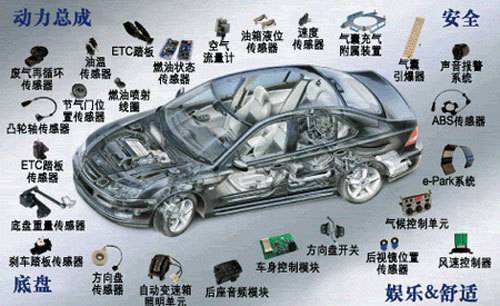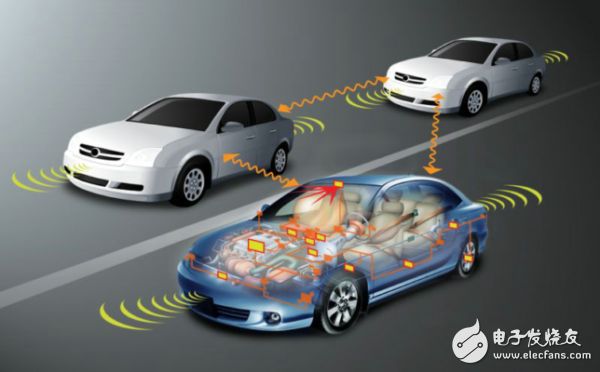Smart cars have two fast-growing paths: one is based on traditional cars and is constantly being automated; the other is mobile internet, which is constantly networked. These two developments are combined and are called intelligent networked cars.
Recently, the "Intelligent Network Linked Vehicle Road Test Management Specification (Trial)" jointly issued by the Ministry of Industry and Information Technology, the Ministry of Public Security and the Ministry of Transport has been released to the public, and the requirements for test subjects, test drivers, test vehicles, etc. have been made clear, and provincial and municipal governments are relevant. The competent department may choose to test the road section, accept the application and issue the test number plate. This means that “unmanned†driving cars are expected to test on more practical roads. The "Management Code" will be implemented on May 1.

At present, the global automotive industry is undergoing subversive changes, and artificial intelligence technology is changing the traditional automobile industry and modern city travel at an alarming rate. "Autonomous driving is becoming an important carrier for the intelligent, informational and low-carbonization of the global automotive industry. It is a new opportunity for the transformation of the automotive industry in the past 100 years. It is a new opportunity for the global automotive industry center and the reconstruction of innovative highlands."
In the “Smart Driving and Opening the Future†salon event sponsored by Zhongguancun Development Group, Ge Wei, director of the Science and Technology Department of the Beijing Municipal Transportation Commission, said, “The competition in the autonomous driving industry is not only the competition of global scientific research strength and talents, but also the research. Competition between institutions and innovation ecology."
Management advice: ensuring safety and encouraging innovation
"Intelligent driving is an industry that the state attaches great importance to development. Whether it is the "New Generation Artificial Intelligence Development Plan" issued by the State Council or "Made in China 2025", intelligent driving and intelligent network are listed as important directions for the future transformation and upgrading of the automobile industry. One." Liu Hang, deputy inspector of Beijing Zhongguancun Management Committee, said.

Intelligent networked cars contain different levels of self-driving cars, and many people refer to them as “unmanned†vehicles. Strictly speaking, only a fully self-driving car that reaches the highest level can achieve no one. At present, most of the cars tested in China belong to conditional automatic driving, not only can not leave people, but also strict requirements for test drivers.
To ensure road safety, the management specification requires that the test driver be always in the driving position and ready to take over the vehicle. The test driver must meet the conditions of signing a labor contract or labor contract, passing automatic driving training, and having no major traffic violation records.
In addition, the "Management Code" imposes strict requirements on test subjects and test vehicles. For example, the test subject proposes seven conditions including unit nature, business scope, accident compensation capability, and test evaluation capability; and six basic requirements for mandatory vehicle inspection and human-machine control mode conversion for test vehicles.
Xin Guobin, deputy minister of the Ministry of Industry and Information Technology, once said that the full verification of the autonomous driving function in the real traffic environment is the most important part of R&D and application. Government departments also use the accumulated data and experience of road testing to analyze in depth the new problems they may face and to improve management methods in a timely manner.
The closed test is a prerequisite for actual road testing. The scene where autopilot is most likely to achieve application is the expressway. Is it possible to open a section of highway for testing if technology is to be rapidly advanced and industrialized? This is a request from many companies.
Ge Wei said that under the current policy framework in Beijing, there is indeed no way to break through the restrictions of the road. "The test roads we currently provide do not include highways and expressways. The next step I believe is that with the development of autonomous driving technology, There will be breakthroughs at the law or at the national level. Beijing does not currently have this condition."
“Guidance and implementation rules for road test work have always reflected a basic principle in the formulation process, which is to encourage innovation under the premise of ensuring safety.†Ge Wei said that this principle will also run through the follow-up of some norms. process.
Facing the integration of two technologies: the advantages and disadvantages coexist
In order to speed up the implementation of various standards for intelligent networked vehicles, the Ministry of Industry and Information Technology recently announced the "Key Points for the Standardization of Intelligent Networked Vehicles in 2018". Previous documents show that by 2020, China will initially establish an intelligent network standard system that can support driving assistance and low-level automatic driving. By 2025, the system will form an intelligent networked car standard system that can support high-level automatic driving, and develop more than 100 intelligent networked car standards.
“After networking, the car is not just an electrified product, its ecology and business model will change.†Li Keqiang, a professor at Tsinghua University and director of the Intelligent Network Vehicle Research Center of Tsinghua University, said that there is a basic consensus on network integration. : Information-based interaction, real-time interaction, collaborative control.
"Under this understanding, product development will start from driving assistance and reach the optimal state, both network and automatic." Li Keqiang said.
The development trend of the domestic networked automobile industry is the same as that of the manufacturing enterprise. It faces the trend of integration and integration, and has advantages and problems. China's natural institutional advantages are conducive to the cross-disciplinary and inter-departmental development of intelligent networked vehicles, the external opportunities for technological change and the internal dynamics of the transformation and upgrading of the automobile industry. Not only that, but China also has a large-scale, world-first auto market, and also has a relatively strong information industry, but the development of intelligent networked cars is still in its infancy.
"Compared with the development of intelligent network in various countries, the United States, Japan and China's industrialization time are consistent, and there are government promotion, corporate leadership and government standards." Li Keqiang said that although the starting line is consistent, it should also be seen. The disadvantages of China's existence: the development strategy of intelligent networked vehicles at the national level has not yet formed, lacking support from large-scale national projects; the basic technology in China's smart car field is still very weak, and the core technology still lags behind the world's advanced level; Weak and small, the industry lacks an effective collaborative research and development mechanism; although China has a strong Internet industry foundation, the integration level of information industry and automobile is shallow; intelligent network association vehicle standards and testing and construction are lagging behind.
Strengthen the construction of common basic platform
Artificial intelligence technology in autonomous driving also has a series of technical challenges. Li Keqiang described the intelligent driving system of Artificial Intelligence 2.0, saying that it should rely on multi-multi-state sensors, interconnected interoperability controllers, cloud big data platforms and other devices, integrating big data-driven learning, human-machine synergy enhancement intelligence and self-organizing group intelligence. The next generation of artificial intelligence technology enables vehicles to achieve deep perception of traffic environment, accurate understanding of traffic situation, integrated decision-making and control of people and vehicles, and realize some or all of the next-generation intelligent systems that are unmanned.
He believes that the development of China's future intelligent networked industry will be based on the Beidou multi-mode positioning terminal, develop a common basic platform, and establish five basic platforms: high-precision map basic data platform, intelligent networked vehicle cloud control basic platform, and new intelligent vehicle terminal. Platform, vehicle intelligent computing basic platform, information security basic platform.
"Now there are many fields in the computing platform in the world, and different fields are also cooperating. To promote the construction of the basic platform in China, we must clearly distinguish the tasks. On such a basic platform, on the price, the system, participants can work together. Make a definition and do it together," Li Keqiang said.
In addition, in the future development, a large number of demonstrations, standards and norms should be built. Established in 2017, Tianjin Intelligent Networking Automotive Industry Research Institute is positioned in the international leading intelligent network communication vehicle strategy research, technology transformation, industry incubation and entrepreneurial service platform. With the theme of intelligent networked vehicles, it radiates new energy, intelligent transportation, artificial intelligence, advanced manufacturing, military-civilian integration and other fields.
"Intelligent network links must reflect the value, consumers will pay for the bill. Now it seems that the future of intelligent, network-linked in the industry each proportion of the proportion, it is not clear, whether the buyer is B-side or C-end, will affect the industry The infrastructure construction, these will continue to look forward with the development of the industrial chain." Li Zhichao, a partner of Silicon Valley Venture Partners, said.
25.2V Charger,25.2V 2A Li-Ion Battery Charger,25.2V 2A Battery Charger,25.2V 2A Ac To Dc Charger
ShenZhen Yinghuiyuan Electronics Co.,Ltd , https://www.yhypoweradapter.com